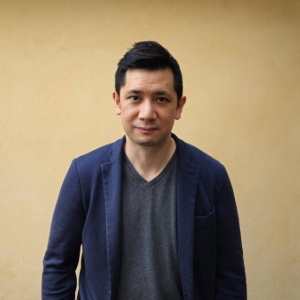Events
Jul 16, 2025
Seminar (2025-07-16)
School of Biomedical Sciences cordially invites you to join the following seminar:
Speaker: Dr. Danny Leung, Associate Professor, Director of Center for Epigenomics Research, Division of Life Science, The Hong Kong University of Science and Technology
Talk Title: Deciphering the epigenomic impacts of repetitive elements: How do retroviruses control our genes?
Date: 16 July 2025 (Wednesday)
Time: 4:30 pm – 5:30 pm
Venue: HKJC-S1A, G/F, The HKJC Bldg for Interdisciplinary Research, 5 Sassoon Road
Host: Professor Jason Wong
Biography

Dr. Danny Leung earned his BSc in Human Genetics from University College London, his MSc in Human Molecular Genetics from Imperial College London, and his PhD in Medical Genetics from the University of British Columbia. He completed postdoctoral training with Prof. Bing Ren at the Ludwig Institute for Cancer Research, where he was a CIRM fellow and managed the NIH Roadmap Epigenomics Project’s San Diego branch., Dr. Leung is currently an Associate Professor at the Hong Kong University of Science and Technology. His research focuses on the epigenetic regulation of non-coding DNA. He directs the HKUST Center for Epigenomics Research and leads the Hong Kong Epigenomics Project. His honours include the 2017 Croucher Innovation Award, Ming Wai Lau Centre for Reparative Medicine Associate Membership, and chairing the 2023 Gordon Research Conference on Genome Architecture. His work has been published in top journals including Nature, Nature Cell Biology, and Cell Reports.
Abstract
While the genome is the instruction manual encoding for all biological functions in our cells, the epigenome is the annotations and footnotes that dictate how our DNA is correctly interpreted. Cell type-specific gene expression is established through modulation of chemical modifications to DNA and histone proteins. Our research investigates how epigenetic mechanisms regulate transcription during development and disease, with an emphasis on repetitive elements, which constitute nearly 50% of the human genome. We focus on retrotransposons, remnants of ancient viral integrations, and their roles in shaping the mammalian epigenome and 3D chromatin structures. Using integrative epigenomic profiling, CRISPR-based genome engineering, and cell biology assays, we have identified retrotransposons that function as distal enhancers and targets for chromatin-modifying complexes. These elements serve as regulatory platforms that influence nuclear architecture. Our work highlights how retrotransposons are repurposed to control gene regulatory networks in both physiological and pathological contexts.
All are welcome.

